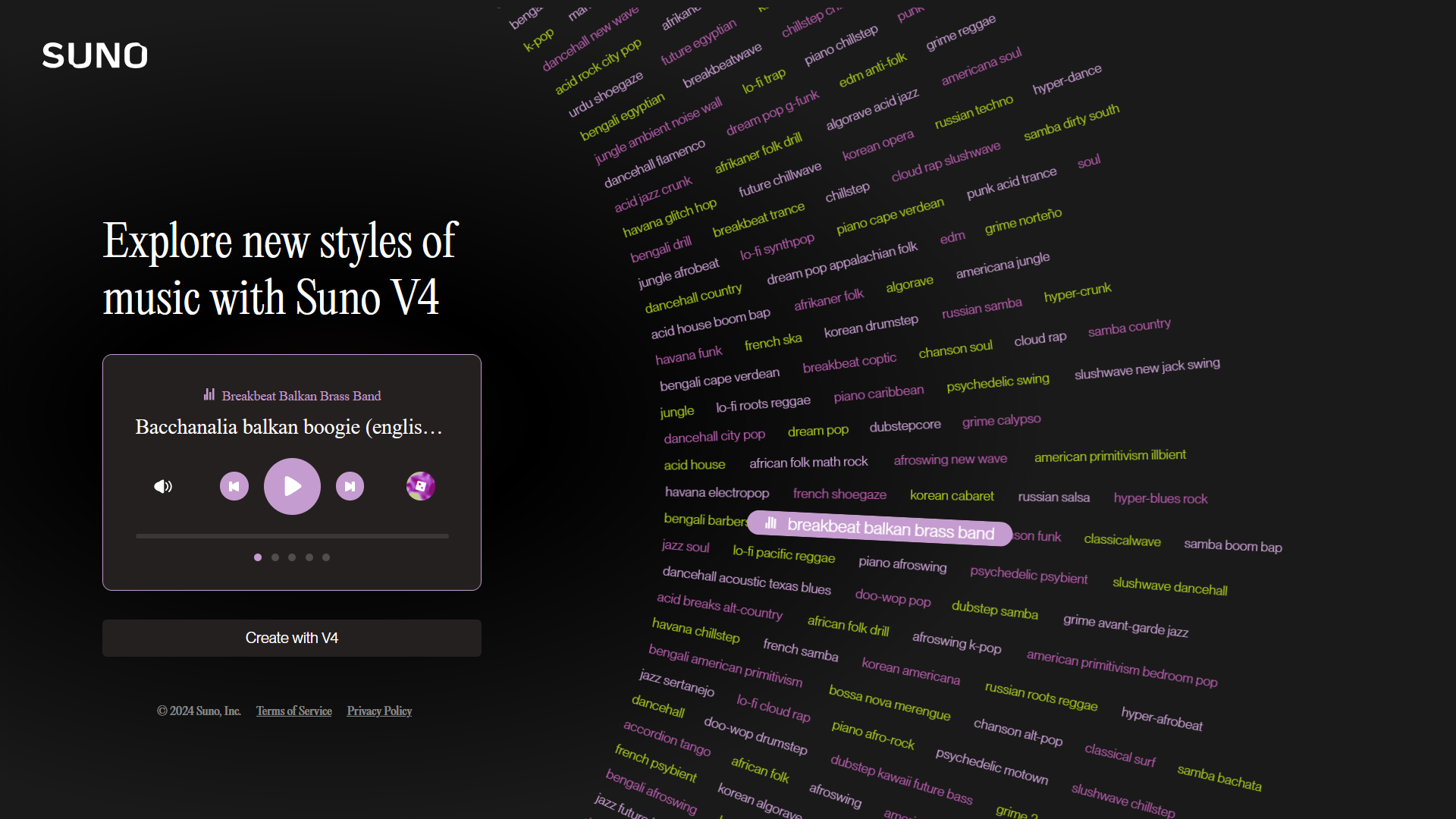Suno's upgraded AI song generator might get even skeptics' toes tapping
Become a 21st-century Barry Gordy with AI singers and lyricists

AI song creator Suno has opened the doors to a new virtual studio, releasing the Suno v4 platform for music creation. The much-teased upgrade lets users make better, longer, more creative songs and is looking to attract professional artists and producers interested in incorporating AI into music-making.
"When we launched v3 earlier this year, it opened up new possibilities for music creation. Post v3 launch, we’ve refined what worked and added more where it mattered most," Suno wrote in a blog post. "The result is v4—a major update that takes music creation to the next level. v4 delivers cleaner audio, sharper lyrics, and more dynamic song structures."
The change is obvious just by hearing how synthetic voices sound on Suno v4. The improved vocal clarity and tone are no longer stuck in the audio uncanny valley. They sound like real people. And, if you made a song with the older versions of the platform, you can use the new Remaster tool to enhance the track to match the new level of quality while keeping all of the elements you like.
Suno v4 also has new user tools that will likely encourage extended use. The Personas feature takes those new, improved voices and makes them part of your library. Essentially, you can apply an AI voice you like to any song you create. The consistent singing style across multiple tracks means you could theoretically create whole albums starring a single voice you like, as though the artificial voice were a singer you had under contract.
@sunomusic Remaster your songs with v4 ✨ Thank you for all of your incredible excitement about v4 and our new Remaster feature, which enhances tracks you made with older models! A big thanks especially to our Pro & Premier subscribers for helping us shape our models with your feedback. Please continue to 👍 and 👎 songs - this helps improve your own music experience, and also helps us make the best v4 experience possible! ❤️ Team Suno
♬ original sound - Suno
See the Sound
Furthermore, you'll have better lyrics for your virtual client to perform with the new lyric model called ReMi, which is available in the custom creation mode. ReMi gets a little quirkier than the usual lyrics, pushing creativity over adherence to more conventional songwriting. It definitely makes for more unpredictable songs, which may or may not be ideal for producing the song you want.
The upgrade also takes the Covers feature out of beta. Covers is a tool that reinterprets your songs in new genres. So, if you generated a fun pop song but wanted to hear it performed like an old Scottish folk song or maybe sung to a dubstep beat, you can hear how that sounds.
Suno v4’s appeal to both casual music lovers and professional musicians makes sense. This kind of technical wizardry may be crucial as Suno faces many rivals, including Tad.AI, Udio, and Boomy. Suno's mobile app and features like Scenes, which writes songs based on uploaded visuals instead of written prompts, will be necessary to stand out.
Get daily insight, inspiration and deals in your inbox
Sign up for breaking news, reviews, opinion, top tech deals, and more.
You can try Suno v4 now, though whether it will survive the ongoing lawsuits Suno and other AI music platforms face from major music labels for copyright infringement is still unclear.
You might also like...

Eric Hal Schwartz is a freelance writer for TechRadar with more than 15 years of experience covering the intersection of the world and technology. For the last five years, he served as head writer for Voicebot.ai and was on the leading edge of reporting on generative AI and large language models. He's since become an expert on the products of generative AI models, such as OpenAI’s ChatGPT, Anthropic’s Claude, Google Gemini, and every other synthetic media tool. His experience runs the gamut of media, including print, digital, broadcast, and live events. Now, he's continuing to tell the stories people want and need to hear about the rapidly evolving AI space and its impact on their lives. Eric is based in New York City.